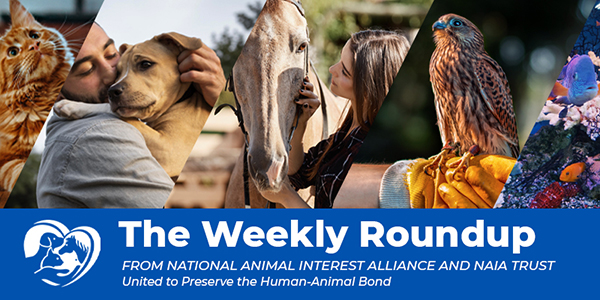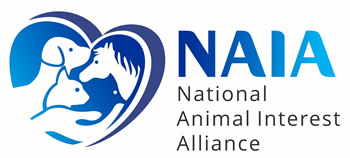
Inside This Issue:
- The Center for Biological Diversity's Misguided Push to List the Diamondback Terrapin as Endangered
- Animals Left to Die After Eviction, Dead Animals Discovered in Freezers
- California "High Quality, High Volume" Spay/Neuter Certification Bill Signed by Governor
- Beaver Seizure Thwarted: Wildlife Rescue Gets Its Day in Court
The Center for Biological Diversity's Misguided Push to List the Diamondback Terrapin as Endangered

A handsome diamondback terrapin. Quick: which subspecies is this?
On September 19, the Center for Biological Diversity (CBD) submitted a petition to the National Marine Fisheries Service (NOAA Fisheries) to list the diamondback terrapin as endangered under the Endangered Species Act (ESA). Unfortunately, this move threatens the very conservation efforts it purports to support. The petition not only targets the species as a whole, ignoring genetic variations, but also fails to recognize the crucial role of captive breeding programs in protecting this and other species.
Captive breeding programs play a vital role in species conservation. They help establish healthy, genetically diverse populations in controlled environments, reducing the demand for wild-caught animals and alleviating pressure on natural habitats. These programs also support research, education, and reintroduction efforts. By targeting the pet trade and captive-bred animals, organizations such as CBD undermine these conservation benefits.
The CBD's petition relies on outdated views of conservation, focusing solely on traditional protection methods while disregarding the value of modern, human-assisted conservation approaches like captive breeding. This single-minded focus on listing species under the ESA can create more problems than solutions, as we've seen with many listed species.
The ESA, enacted in 1973, was a crucial step in species protection. However, it has not evolved with our understanding of effective conservation. The law's lack of nuance can lead to counterproductive regulations that hinder species recovery. The ESA must be modernized to recognize the benefits of responsible human interaction, like captive-breeding, in conservation efforts.
Here are some potential deleterious consequences for diamondback terrapin conservation:
- ESA listing will ban the interstate trade of captive-bred terrapins, eliminating a source of animals for breeding or relocation programs.
- Many states would criminalize owning terrapins, discouraging legal, responsible pet ownership thus driving the trade underground to unregulated black-market sources, incentivizing wildlife trafficking.
- Breeding programs would face significant challenges, threatening the genetic health of captive populations.
Instead of pursuing ESA listing, resources should focus on addressing the actual threats to diamondback terrapins, such as habitat loss and pollution. Supporting responsible captive breeding operations and herpetoculture can complement these efforts while simultaneously providing well-bred stock for those interested in keeping them in human care. Doing so will include the expertise of those who are already successfully breeding diamondback terrapins and raising them to adulthood. That husbandry knowledge is key to providing the best possible welfare for managing populations. A modern, nuanced approach to conservation is needed that recognizes the potential of human-assisted conservation, alongside traditional protection methods.
Source: Conservationists Seek ‘Endangered’ Designation for Terrapins
Animals Left to Die After Eviction, Dead Animals Discovered in Freezers

Cats are pretty resilient. One-eyed cat chilling on a chair.
In Pennsylvania, three people have been charged with felony animal cruelty for allegedly abandoning 20 animals after being evicted from a home they were renting. Even more disturbing is the discovery of over 50 dead animals inside the home’s freezers. Most of the live animals were adult cats, most of the dead animals were kittens. Really horrific stuff, and it doesn’t take a degree in biology to posit where all the kittens were coming from.
The live animals were recovered by humane officers who were called to investigate the boarded-up house after the tenants' eviction. The animals had been abandoned without any food and water and were in dire shape. Among other gruesome details, the forensics report includes “missing eyes” in its description of the animals' condition. Fortunately, only one of the cats was in bad enough shape to require euthanasia. The animals in the freezer weren’t discovered until weeks later, after police were called to the home to investigate a burglary.
The home itself was essentially destroyed, too – urine, feces, property damage, you name it – and has been deemed a blight by the county.
Given the grisly discoveries in this house, it is obvious the animals were not receiving adequate care even before the eviction. So perhaps it shouldn’t come as a surprise that the tenants didn’t bother informing anyone about the animals they left behind – the negligence was just more of the same. But it's still a real kicker. Abandoning pets to slowly starve to death is unconscionable. There are always compassionate people out there who will do what they can to help animals – but they have to know that those animals need help.
California "High Quality, High Volume" Spay/Neuter Certification Bill Signed by Governor

Have you licked your veterinarian today?
A new California bill that seeks to expand access to low and no-cost spay and neuter services was signed by the governor last week. SB 12333 would “develop a high-quality, high-volume spay and neuter certification program” offered to veterinary students, licensed veterinarians, and veterinary technicians.
We’ve covered the shortage of veterinarians and veterinary services for a few years, so we won’t rehash the problem in detail here. Essentially, it boils down to an issue of supply and demand that affects all aspects of veterinary care, and it will take years to rectify.
But the dogs and cats in California’s shelters – where even basic veterinary care can be hard to come by – don’t have years to wait for the situation to sort itself out. Similarly, California pet owners who are having a difficult time affording or scheduling spay and neuter surgeries probably don’t find comfort in the thought that “Oh, things will probably be a little better by 2030.” So SB 12333 seeks to rectify this specific veterinary care problem in a more immediate manner (as immediate as legislation can be, anyway). Whether it succeeds in its goal or not remains to be seen but expanding access to low/no-cost spay and neuter services is a goal worth pursuing.
Source: Governor Signs Senator Wilk’s Bill To Address Animal Shelter Overcrowding
Beaver Seizure Thwarted: Wildlife Rescue Gets Its Day in Court

Nibi the beaver. Source: Newhouse Wildlife Rescue Facebook photo.
In Massachusetts, wildlife officials’ plan to remove Nibi the Beaver from her rescue home was thwarted by a temporary restraining order – a last-minute reprieve the governor herself took credit for. How’s that for high-stakes drama? We hope you are listening, Hollywood.
Nibi, the beaver at the center of this story, was rescued as a one-pound orphan in 2022 by Jane Newhouse of Newhouse Wildlife Rescue (NWR). Over the last few years, Nibi has become a minor Internet celebrity. Nibi hasn’t lived anywhere outside of her rescue home, and unfortunately, attempts to socialize her with other beavers came too late in her development. According to Newhouse, Nibi displays no interest in or doesn’t get along with other members of her own species.
MassWild feels NWR failed in its role as a licensed wildlife rehabilitator, and prior to this week’s restraining order, had planned on releasing Nibi back into the wild themselves.
NWR believes Nibi is too domesticated and inexperienced to survive the winter if she is released into the wild. Admittedly, wild animals that have spent a lot of time in captivity have a poor track record of survival after being released back into the wild. Nibi’s odds may be even worse than average given the specifics of her situation, so ultimately, the rescue would like to see Nibi receive an educational license and become an ambassador animal.
A hearing on Nibi’s fate is scheduled for Friday, October 4 – it may be happening as you read this! – but it comes with its own drama: Newhouse says she was already scheduled to do an educational presentation at a middle school on Friday afternoon, so she can only attend the hearing if it is in the morning. Uh oh! But either way, Nibi’s rescue will have its day in court, and we will let you know the outcome.
Source: What's next for Nibi? Court hearing Friday could determine beaver's fate
Also in the News...
★ This SC Humane Society lost power after Helene. Here’s what happened to its 145 animals (Tropical Storm Helene; Community Support; Rescue & Shelter Solutions)
★ Horse who led Queen's coffin given ‘animals’ OBE’ (Royal Horse Sense; PDSA Awards)
★ Snakes, turtles among more than 100 animals removed from home in Allentown, Pennsylvania (Animal Rescue; Hoarding)
★ Study shows that wild animals also get accustomed to humans (Research Data; Habitat Loss; Human-Wildlife Interaction)
★ (Commentary) Social media influencers’ bad behavior with marine wildlife is risky for animals, too (Promoting Wildlife Awareness and Conservation: Best & Worst Practices)
★ 850 animals removed from Santa Fe-area pet store under multiple investigations for animal cruelty (Complaints & Investigations; Unsafe Conditions)
★ Which animal can have the most babies at one time? (300 Million Eggs; How Do You Even Count That High?)
★ Scientists mapped every neuron of an adult animal’s brain for the first time (Research & Biology; Brain Maps!)
★ The List: Animals with hilarious names (Goofy Lists; Hilarious Is an Overstatement; Lowbrow Humor Alert)
Click here to see what is happening legislatively
Register for NAIA's Annual Conference Animal Experts United: Know Your Value, Share Your Knowledge!

